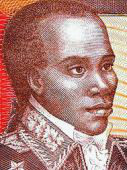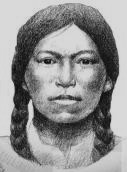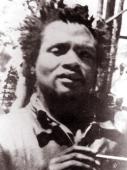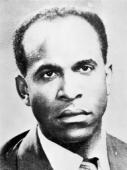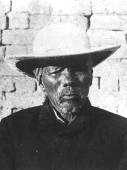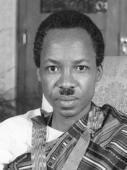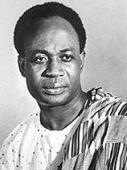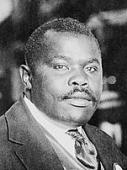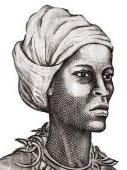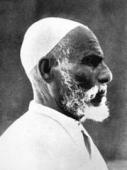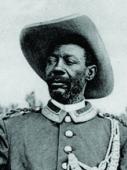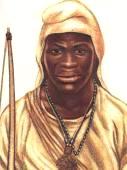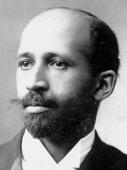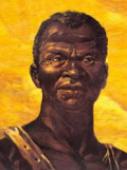
On October 12, 1492, Christopher Columbus set foot on the so called "New World", ushering in a cycle of occupation, violence, genocide and slavery: this was the beginning of colonization.
Colonization is a global phenomenon: there is hardly a country in the world that has not been colonized, a colonizer, or both, such as the United States. Colonization is one of the phenomena that has most disrupted humanity. It has left a deep and lasting impression on all continents and the consequences of this are
- demographic: there are millions of people who have been exterminated, deported, or sold into forced labour.
- political: in Africa, America, Asia, and Oceania, cities, kingdoms and empires have disappeared. Traditional communities were gradually disrupted and subjected to European domination.
- economic: the entire economic fabric of societies was brutally dismantled. Crops were looted and famines became more frequent. Dispossessed of their own wealth, those who were colonized were permanently immersed in a state of chronic poverty.
- cultural: colonization destroyed many civilizations, languages, cultures and religions. Those who were colonized often lost their roots and their identity. The social image of the non-European was degraded and this has facilitated the development of racist theories, which has fuelled violence and discrimination of all kinds.
- ecological: the introduction of technologies in the service of profit and productivity focused visions caused the ransacking of millions of hectares of forests, the wasting of natural resources, the pollution of whole regions and it has made the environment fragile and deteriorated public health. It has also helped to disrupt ecosystems and, of course, the most devastating effect of colonization from an ecological aspect is the increase of global warming.
Begun in the late fifteenth century, colonization lasted several centuries and continues to this day in modern forms (imperialism, mining, land grabbing, military interventions, etc.) .
When a wrong has been committed, it must be repaired. If you recognise that colonization has been a source of massive crimes against humanity, then reparations are legitimate. If you refuse these reparations, then you deny the criminal nature of colonial crimes.
This is why we are forcefully demanding reparations, and this demand is non-negotiable. Since the beginning of colonization, over five centuries ago, men and women have fought against it and demanded justice.
Whether it is genocide in the Americas, the transatlantic slave trade, or colonization in Africa, Asia and Oceania, figures as famous as Condorcet, Callie House, Martin Luther King Jr., Malcolm X, Frantz Fanon, Desmond Tutu, and Wole Soyinka have defended the principle of reparations.
The 2001 UN conference in Durban has strengthened the mobilization of peoples and now states and even regional organizations have involved. As of now, this issue is being debated in the African Union, Caricom, in much of the Americas, Africa, Asia, Oceania, and Europe. Some states have even begun to implement their own reparations policies.
On October 12, 2013 we are launching the International day for reparations related to colonization. Approved and supported by the Assembly of convergence "To end with racism, xenophobia and the discriminations that are the bases of colonialism" of the World Social Forum held in Tunis in March 2013, this initiative will give more strength and visibility to actions around this topic: Our credo is Unity is strength.
One may certainly discuss the terms of reparations, but it is important that it is effectively implemented as soon as possible. From this day on, now and every year forward, we will aim to advance justice in the world. Because it is not only the past, but the present and the future potential of all things is hampered both by the weight of the past colonialism and by new forms of imperialist domination.
We invite citizens, NGOs, and governments to seize this iconic date and implement any and all action necessary to advance the cause of reparations all over the world (press releases, conferences, exhibitions, media campaigns, street actions, cultural festivals, radio broadcasts or television, political decisions, etc.).
Our parents and grandparents fought for independence and freedom, we must continue their fight to get justice.
Have already joined ...
Already realized activities
Giornata Internazionale per le Riparazioni dal Colonialismo
Giornata Internazionale per le Riparazioni dal Colonialismo: Tavola rotonda pubblica e Workshop
Reparación por arrasar la mitad del mundo
Saqueo, sometimiento y dominio cultural: el 12 de octubre, jornada de resistencia
Dominic Kalipersad: "International Day for Reparations Observed on Oct. 12 ..."
12 de octubre, Día Internacional por las Reparaciones con las consecuencias de la Esclavitud
Journée internationale pour la réparation des crimes et pillages coloniaux
Il CIVG (Centro Iniziative per Verità e Giustizia) Italia si associa all’appello
Delroy Williams: "International Day for Reparations is marked on 12 October ..."
Mia Amor Mottley: "Today, on the International Day for Reparations, I want ..."
12 octobre : Journée Internationale pour les Réparations liées à l colonisation !
NsARC International Day for Reparations - 2021
The Caribbean's case for reparations: Part III
The Caribbean's case for reparations: Part II
The Caribbean's case for reparations: Part I
Marking the International Day for Reparations
“The Case for Reparations” Conversation with Prof Sir Hilary Beckles
Beckles Calls for $50 billion Reparations Fund
Centre for Reparation Research to Commemorate Indigenous Peoples Day with Virtual Symposium
Movimiento Panafricanista quiere que Torra pida perdón por el esclavismo
France. Lancement des cycles marronage et réparation 2019-2020
Chlordécone : mobilisation ce samedi pour demander réparation
12 octobre Journée internationale pour les réparations!
Manifiesto 12 de Octubre: Nada que celebrar 2018, Descolonicémonos!
Prussian Colonial Heritage Sacred Objects and Human Remains in Berlin Museums
History of Black people in Germany explored
Einladung zum Fachtag "Entwicklungshilfe oder Reparationen?" am 12. Oktober 2017 in Potsdam
Manifiesto: Descolonicémonos. 12 de Octubre. Nada que celebrar. Encuentro entre Pueblos y Culturas.
Congress Restorative Justice After Genocide
11.10.2016 | PM: Herero und Nama aus aller Welt kommen in Berlin zusammen
12 de octubre 2016: Nada que celebrar! Descolonicémonos Manifiesto
Zum internationalen Tag für Reparationen
12.10.2015 – Reparation Day: Mobi-Video zum Jahrestag des Genozidbefehls
12.-14.10.2015 – „Not about us without us!“ events with OvaHerero guests in Berlin
Súmate a esta declaración “12 De Octubre, Nada Que Celebrar”
International Day for Reparations Relating to Colonisation (UCL-supported event)

